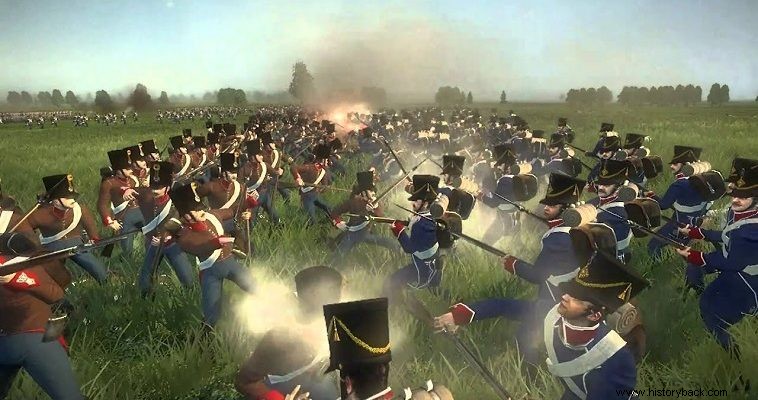
In April 1809 the French and Austrian empires were once again at war. Austria had lost Dalmatia in 1805 which Napoleon gave to the "Kingdom of Italy". The Dalmatian Army under General Auguste Marmont was stationed in Dalmatia.
Marmon's "army" had two divisions of infantry and heavily reinforced artillery - 78 guns - but no cavalry. Against this force of 14,000 men, the Austrians had the brigade of Lt. Gen. Andreas Stoicevics with a force of 8,100 men.
Stojcevic's brigade had nothing but militia (Grenz) and garrison infantry divisions with older men, four battalions of national guards, some volunteers, a company of cavalry, eight light guns and six medium guns.
Although they were numerically and qualitatively behind their opponents, the Austrians took the initiative of the movements. Between April 26 and 30, 1809 the Austrians (actually Serbs and Croats, the vast majority of them), prevailed over the French in the battles at the Zrmanja river crossings.
With the loss of 250 men, Stoicevic inflicted 1,200 casualties on the French (1,000 dead and wounded, 200 prisoners). However, the Austrians failed to capture Kirn (today's Knin), an important junction between Zagreb and Split. This happened because the Austrians were also treacherously attacked by the Turks.
On May 15, however, an event unprecedented for the Napoleonic Wars took place. Captain Hrabowski with 150 Mountain Guards and men of the Dalmatian Free Corps (volunteers), attacked Deljon's French brigade in the middle of the night causing casualties, but mostly incredible confusion and panic. The Austrians killed at least 100 French and left unmolested with 200 prisoners and much booty.
The next day, however, Marmon attacked with all his forces (battle of Pribudic) against the Austrians and forced them to retreat with significant losses (1,000-1,200 men). The next day a new battle was fought in Grasac. The Austrians under the command of Colonel Matias Rembrovic fought well. The French suffered greater losses but the Austrians were forced to retreat as they were outnumbered.
The Austrians retreated behind the Lika River near Gospić. On May 21 the French attacked and managed to establish a bridgehead after a fierce battle. After continuous attacks, most of the French prevailed, although they suffered greater losses (over 1,000 French dead, wounded, captured, compared to 764 Austrians). After his victory Marmon continued to Trieste and Ljubljana.
On June 26, the fierce battle of Graz was fought, with the French winning with difficulty. However, the fate of the war was decided in the epic battle - slaughterhouse of Bagram (July 5-6, 1809).
In any case the fact that a force outnumbered by almost 2:1 in infantry, dramatically in artillery and even more dramatically in quality managed to hold off the French for several days is particularly significant given that the Austrians were forced to fight and the Turks who attacked them in the south, and she has special honor for the morale of her men who fought for the double-headed eagle of the Habsburgs without even being Austrians.
